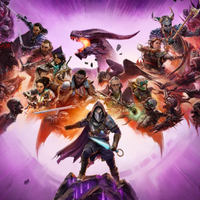Dragon Age: The Veilguard's safe, dull writing has me yearning for Mass Effect depth
The latest entry in BioWare's Dragon Age series makes me miss Mass Effect's texture.
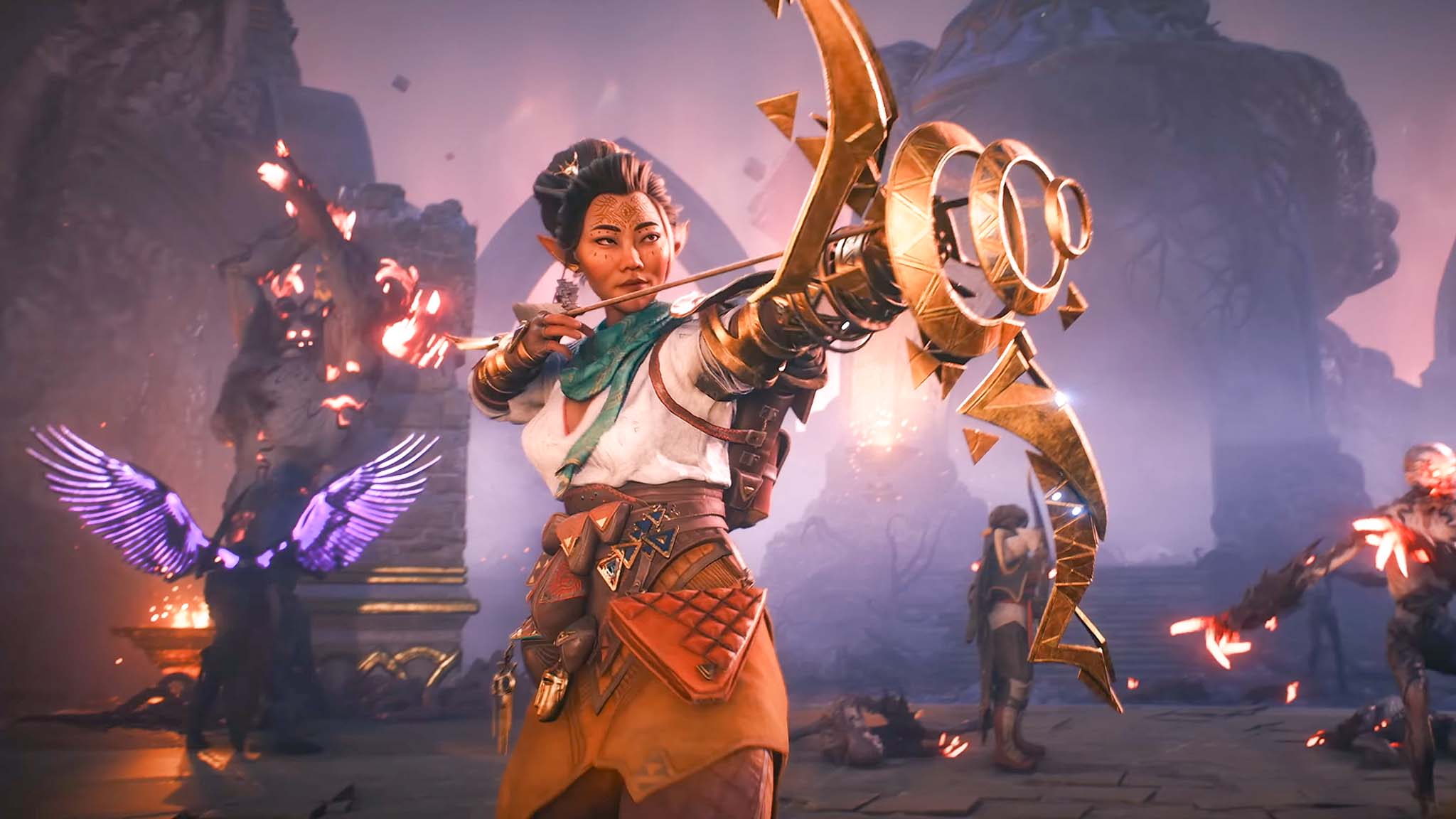
Two years after its introduction as "Dreadwolf" and a full decade after the release of 2014's award-winning Dragon Age: Inquisition, we've finally gotten a follow-up in the form of Dragon Age: The Veilguard. It's BioWare's first new single player RPG since the 2017's controversial Mass Effect: Andromeda, and also its first original title to follow the ill-fated multiplayer sci-fi game Anthem.
Thus far, The Veilguard has performed strongly, with the game passing Call of Duty: Black Ops 6 sales on Steam's Top Sellers chart and over 70,000 players kicking off their fantasy adventure in Thedas directly after its launch (console metrics aren't available yet, but I expect them to be similarly positive). I've gotten deep into a playthrough myself for coverage purposes, and while I agree with the general consensus that it's a good game overall (I love the combat), I have found one aspect of it to be quite disappointing: the writing.
I came into the game as a longtime fan of BioWare and its classics like Star Wars: Knights of the Old Republic and the Mass Effect trilogy, and above all else, what gripped me about those games was how deep and rich their stories were. Conversations with and between companions and NPCs could last upwards of 30 minutes and had wide varieties of dialogue options to pick from, with speech decisions having a major impact on everything from major plot developments to the way you're treated by individual characters. Their worlds felt dynamic, reactive, and alive — far more tangible and real than many RPG settings that came after, despite visuals considered dated by today's standards.
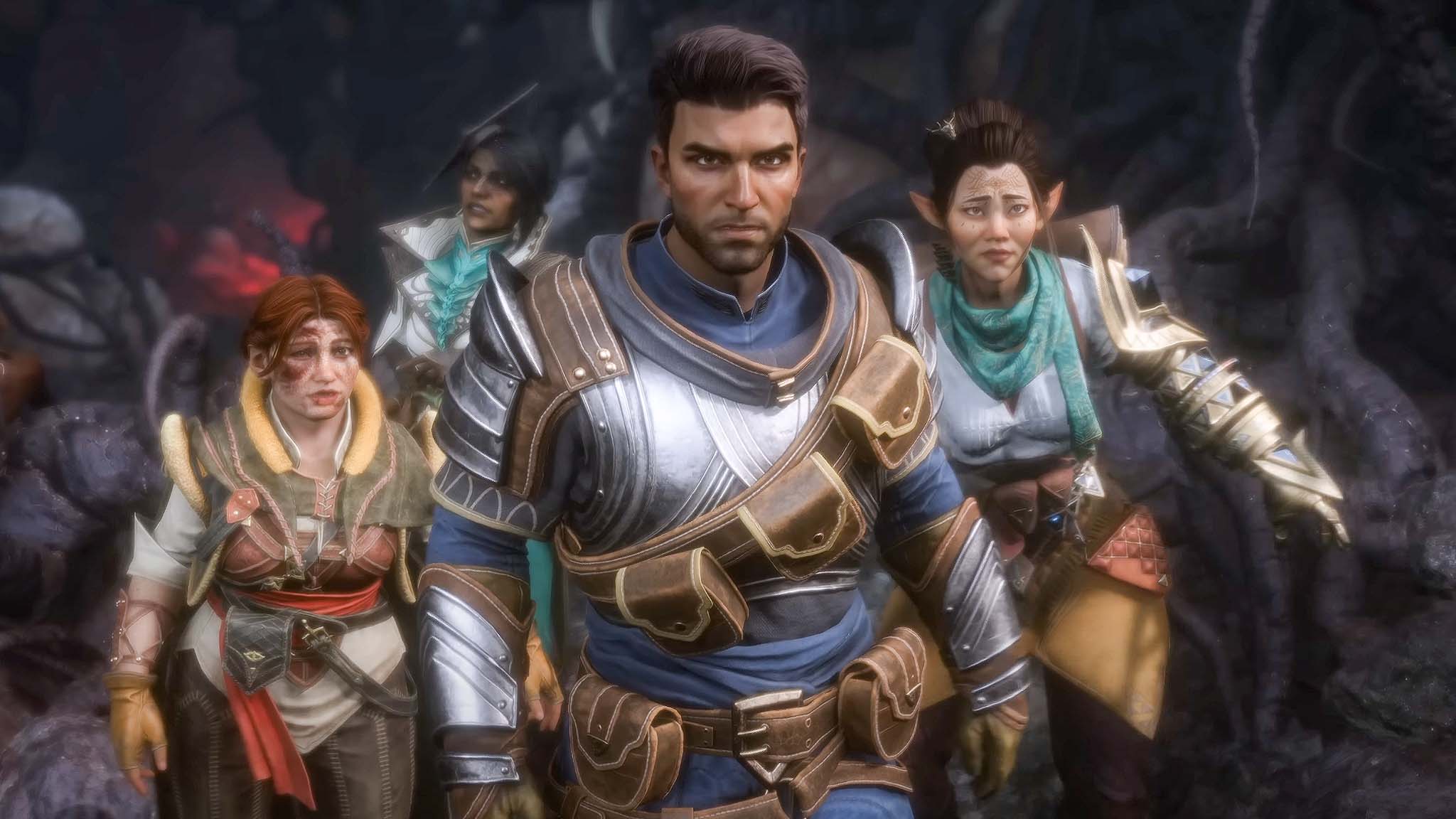
Not so with Dragon Age: The Veilguard. If I had to describe its script with one word, it would be "smooth" — devoid of friction, rough edges, and interesting texture. It calls your average Marvel film to mind, giving players lots of banter to smile at, flashy action to enjoy, and vibrant high fantasy landscapes to bask in, but very little narrative depth beneath its flashy surface.
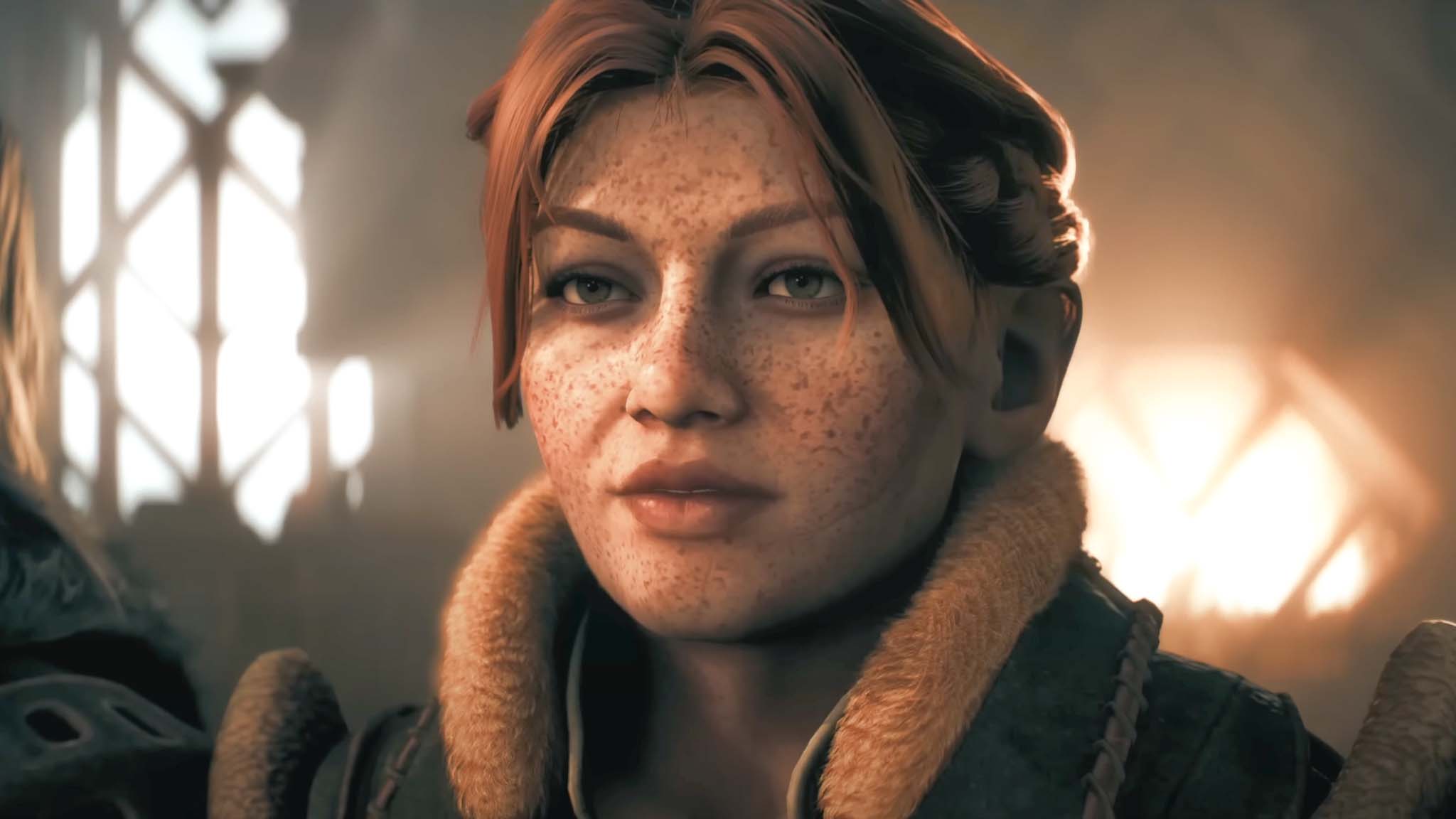
- Our Dragon Age review
- Dragon Age review roundup
- Dragon Age story recap
- The best classes to play
- The best factions to choose
- How to upgrade gear
- Best gaming handheld settings
Two elven gods threatening to end the world seems like something that should drive some tension, but you'd hardly know it's happening with how aggressively positive most of your party members are, with moments of gravity or conflict between characters often resolved in what feels like the blink of an eye. It's as if the game is afraid to let you engage with strife of any kind and is hellbent on making sure you like everyone. And I do! I like all of the Dragon Age: The Veilguard companions, because they're very nice. But because they never really push back against you, each other, or the world around them, they're dreadfully boring and woefully static, and I haven't developed a meaningful connection to any of them.
It's an issue made glaringly apparent by the Baldur's Gate 3 replay I'm 60 hours into right now. In that game, characters like Astarion, Lae'zel, and Shadowheart aren't afraid to question decisions and often react to events that occur around them, leading to worldview debates and insightful discussions about their beliefs and pasts. Those dialogues kickstart lengthy character arcs that culminate in instances of significant change or growth, and that's the kind of richness I crave in RPGs; playing through The Veilguard just made me hungry to get back to Faerûn, as a result.
The problem extends to Rook — the character you play through the game as — as well. Each dialogue choice presents you with a handful of different options, including optimistic, emotional, witty, aggressive, and gruff responses. The overarching tone of all your speech, though, is heroic, which makes it hard to actually roleplay in the roleplaying game if you want to be anything other than a generic Good Guy™.
Get the Windows Central Newsletter
All the latest news, reviews, and guides for Windows and Xbox diehards.
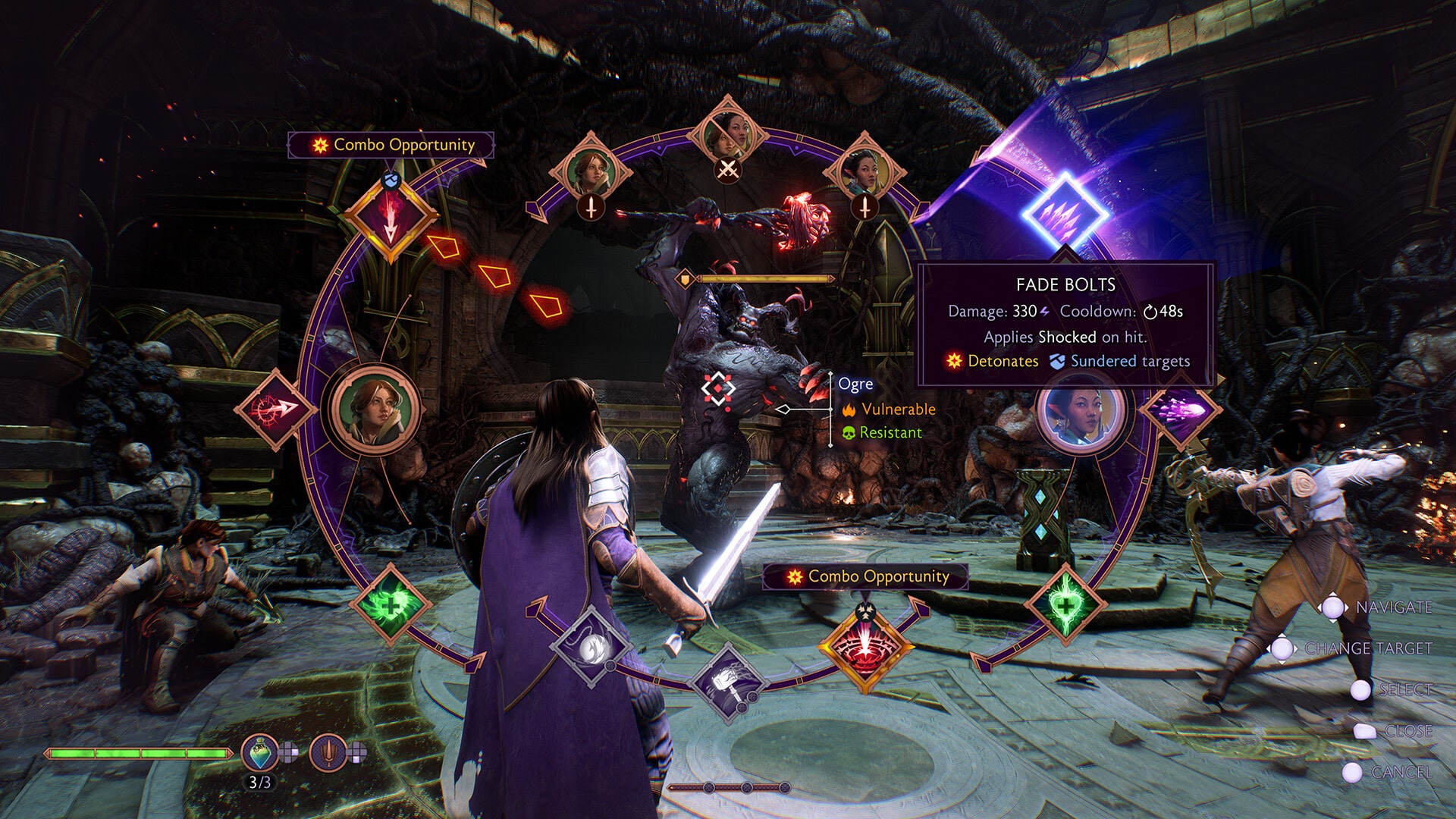
To be clear, I don't think The Veilguard's writing is bad; it's certainly a big step up from the cringey campiness of Andromeda, and it does a great job of making lots of your plot-relevant decisions — both big and small — actually have a lot of impact on how the story unfolds. But while it may be decent, it doesn't live up to the lofty expectations many (myself included) have for BioWare.
Perhaps some of my feelings stem from the fact that I'm coming into Dragon Age as a newcomer with The Veilguard, and don't have a connection with its returning characters. I've seen similar criticisms come from big fans of the series, though, and I'd argue these issues are independent of having legacy context, anyway.
Ultimately, there's just not much in the writing you can really sink your teeth into, and that's a bummer considering this is BioWare we're talking about. I've stopped trying and have opted to just enjoy it for the playable action-packed popcorn flick that it is, but I hope future titles like the next Mass Effect can satisfy on a deeper level.
🎃The best early Black Friday deals🦃
- 🎮Lenovo Legion Go (512GB) | $499.99 at Best Buy (Save $200!)
- 🖥️ABS Cyclone Desktop (RTX 4060) | $1,099.99 at Newegg (Save $400!)
- 💻ASUS ROG Zephyrus G14 (RTX 4060) | $1,249.99 at Best Buy (Save $350!)
- 📺HP Omen 27qs (QHD, 240Hz) | $349.99 at Best Buy (Save $80!)
- 🔊2.1ch Soundbar for TVs & Monitors | $44.99 at Walmart (Save $55!)
- 🎧Sennheiser Momentum 4 ANC | $274.95 at Amazon (Save $125!)
- 📺LG C4 OLED 4K TV (42-inches) | $999.99 at Best Buy (Save $400!)
Dragon Age: The Veilguard
10 years after the events of Dragon Age: Inquisition, a new team must be formed to stop the Dread Wolf from tearing down the Veil that separates the land of Thedas from a world of spirits and demons. Roleplaying as Rook, you'll form alliances and build up allies to keep the world from being destroyed.
Xbox: Amazon | Best Buy | Walmart
PC: CDKeys (Standard) | CDKeys (Deluxe) | Steam
Brendan Lowry is a Windows Central writer and Oakland University graduate with a burning passion for video games, of which he's been an avid fan since childhood. He's been writing for Team WC since the summer of 2017, and you'll find him doing news, editorials, reviews, and general coverage on everything gaming, Xbox, and Windows PC. His favorite game of all time is probably NieR: Automata, though Elden Ring, Fallout: New Vegas, and Team Fortress 2 are in the running, too. When he's not writing or gaming, there's a good chance he's either watching an interesting new movie or TV show or actually going outside for once. Follow him on X (Twitter).
